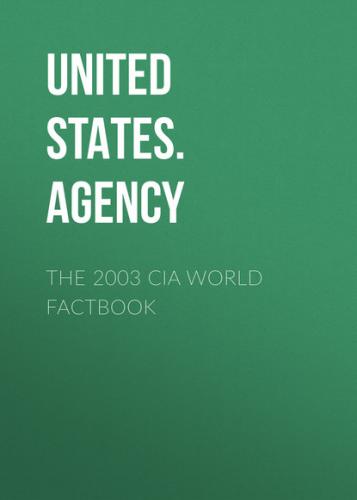Total fertility rate:
1.7 children born/woman (2003 est.)
HIV/AIDS - adult prevalence rate:
less than 0.1% (2001 est.)
HIV/AIDS - people living with HIV/AIDS:
1,200 (2001 est.)
HIV/AIDS - deaths:
less than 100 (2001 est.)
Nationality:
noun: Finn(s)
adjective: Finnish
Ethnic groups:
Finn 93%, Swede 6%, Sami 0.11%, Roma 0.12%, Tatar 0.02%
Religions:
Evangelical Lutheran 89%, Russian Orthodox 1%, none 9%, other 1%
Languages:
Finnish 93.4% (official), Swedish 5.9% (official), small Sami- and
Russian-speaking minorities
Literacy:
definition: age 15 and over can read and write
total population: 100% (1980 est.)
male: NA%
female: NA%
Government Finland
Country name:
conventional long form: Republic of Finland
conventional short form: Finland
local short form: Suomi
local long form: Suomen Tasavalta
Government type:
republic
Capital:
Helsinki
Administrative divisions:
6 provinces (laanit, singular - laani); Aland, Etela-Suomen Laani,
Ita-Suomen Laani, Lansi-Suomen Laani, Lappi, Oulun Laani
Independence:
6 December 1917 (from Russia)
National holiday:
Independence Day, 6 December (1917)
Constitution:
1 March 2000
Legal system:
civil law system based on Swedish law; Supreme Court may request
legislation interpreting or modifying laws; accepts compulsory ICJ
jurisdiction, with reservations
Suffrage:
18 years of age; universal
Executive branch:
chief of state: President Tarja HALONEN (since 1 March 2000)
head of government: Prime Minister Matti VANHANEN (since 24 June
2003) and Deputy Prime Minister Antti KALLIOMAKI (since 17 April
2003); note - former Prime Minister Anneli JAATTEENMAKI resigned
cabinet: Council of State or Valtioneuvosto appointed by the
president, responsible to Parliament
elections: president elected by popular vote for a six-year term;
election last held 16 January 2000 and 6 February 2000 (next to be
held NA February 2006); prime minister and deputy prime minister
appointed from the majority party by the president after
parliamentary elections
note: government coalition - KESK, SDP, and SFP
election results: Tarja HALONEN elected president; percent of vote -
Tarja HALONEN (SDP) 51.6%, Esko AHO (Kesk) 48.4%
Legislative branch:
unicameral Parliament or Eduskunta (200 seats; members are elected
by popular vote on a proportional basis to serve four-year terms)
election results: percent of vote by party - Kesk 24.7%, SDP 24.5%,
Kok 18.5%, VAS 9.9%, VIHR 8%, KD 5.3%, SFP 4.6%; seats by party -
Kesk 55, SDP 53, Kok 40, VAS 19, VIHR 14, KD 7, SFP 8, others 4
elections: last held 16 March 2003 (next to be held NA March 2007)
Judicial branch:
Supreme Court or Korkein Oikeus (judges appointed by the president)
Political parties and leaders:
Center Party or Kesk [Matti VANHANEN]; Christian Democrats or KD
[Bjarne KALLIS]; Green League or VIHR [Osmo SOININVAARA]; Left
Alliance or VAS (Communist) composed of People's Democratic League
and Democratic Alternative [Suvi-Anne SIIMES]; National Coalition
(conservative) Party or Kok [Ville ITALA]; Social Democratic Party
or SDP [Paavo LIPPONEN]; Swedish People's Party or SFP [Jan-Erik
ENESTAM]
International organization participation:
AfDB, AsDB, Australia Group, BIS, CBSS, CE, CERN, EAPC, EBRD, ECE,
EIB, EMU, ESA, EU, FAO, G- 9, IADB, IAEA, IBRD, ICAO, ICC, ICCt,
ICFTU, ICRM, IDA, IEA, IFAD, IFC, IFRCS, IHO, ILO, IMF, IMO,
Interpol, IOC, IOM, ISO, ITU, NAM (guest), NC, NEA, NIB, NSG, OAS
(observer), OECD, OPCW, OSCE, PCA, PFP, UN, UNCTAD, UNESCO, UNFICYP,
UNHCR, UNIDO, UNIKOM, UNMEE, UNMIBH, UNMIK, UNMOGIP, UNMOP, UNTSO,
UPU, WCO, WEU (observer), WFTU, WHO, WIPO, WMO, WTrO, ZC
Diplomatic representation in the US:
chief of mission: Ambassador Jukka Robert VALTASAARI
consulate(s) general: Los Angeles and New York
FAX: [1] (202) 298–6030
telephone: [1] (202) 298–5800
chancery: 3301 Massachusetts Avenue NW, Washington, DC 20008
Diplomatic representation from the US:
chief of mission: Ambassador Bonnie McELVEEN-HUNTER
embassy: Itainen Puistotie 14A, FIN-00140, Helsinki
mailing address: APO AE 09723
telephone: [358] (9) 616250
FAX: [358] (9) 174681
Flag description:
white with a blue cross extending to the edges of the flag; the
vertical part of the cross is shifted to the hoist side in the style
of the Dannebrog (Danish flag)
Economy Finland
Economy - overview:
Finland has a highly industrialized, largely free-market economy,
with per capita output roughly that of the UK, France, Germany, and
Italy. Its key economic sector is manufacturing - principally the
wood, metals, engineering, telecommunications, and electronics
industries. Trade is important, with exports equaling almost
one-third of GDP. Except for timber and several minerals, Finland
depends on imports of raw materials, energy, and some components for
manufactured goods. Because of the climate, agricultural development
is limited to maintaining self-sufficiency in
